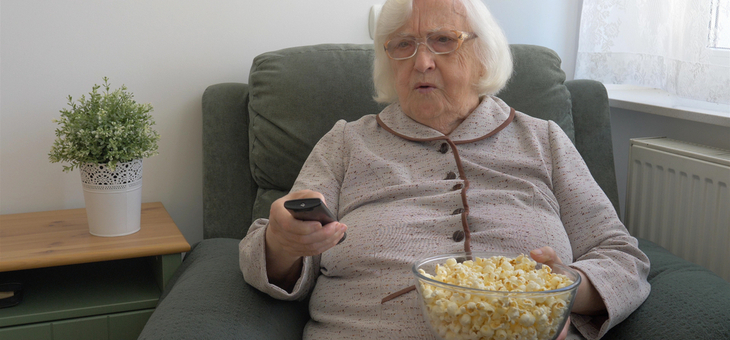While different states are working through different levels of restrictions across Australia right now, weight gain has been standard across the nation.
Whether there are restrictions on exercise, such as those currently being imposed in Victoria, or a tendency towards comfort food in dealing with the added stress, maintaining a comfortable weight has been much harder this year.
But what if the it isn’t just eating and exercise alone that is responsible for weight gain?
A new study from the University of British Columbia in Canada has found a link between a lack of social ties and obesity, but it seems as though it mainly applies to older women, not older men.
The study found that women who lack social ties had a greater likelihood of being obese. Men, on the other hand, were less likely to be obese if they had a smaller social network.
The researchers analysed the social ties of 28,238 adults aged 45 to 85 from the Canadian Longitudinal Study on Ageing and looked for links to waist circumference, body mass index and general obesity.
They found that women who were single, widowed, divorced or separated had higher odds of abdominal and general obesity. There were higher odds if they had limited social participation – women who were not married, lived alone and had no monthly social activities had the highest average waist size.
The findings in men were quite different.
Widowed men who were co-living and had a large social network were those with the greatest average waist size. Men whose social network had more than 219 contacts were more likely to be obese than those with smaller networks.
“There is a lot of literature suggesting that marriage is health-promoting for men and potentially less so for women, so our results about marital status were kind of surprising,” said principal investigator Dr Annalijn Conklin.
“The different types of social ties that we looked at had a more consistent relationship with obesity for women.
“Those patterns in men were less obvious and seemed to sometimes even be reversed to what we saw in women.”
Dr Conklin explained that some of the differences between the finding between men and women could perhaps be explained by the differing gender roles and the different social expectations around those roles.
“You would think that having small social networks would be a kind of social stress and that would have consequences for obesity, but we found that it was potentially protective for men,” Dr Conklin said.
“It could be that managing very large networks becomes a source of stress for men, as research has shown that men often assign to their wives the emotional labour of keeping track of birthdays, special events and organising family or social gatherings.”
The researchers suggested that health care providers should consider including social activities alongside recommendations for exercise and a healthy diet when treating non-partnered older women.
How many people are in your social network? Have you been socialising less due to COVID-19 restrictions? Have you gained weight this year?
If you enjoy our content, don’t keep it to yourself. Share our free eNews with your friends and encourage them to sign up.
Related articles:
https://www.yourlifechoices.com.au/health/news/saving-your-eyesight-early
https://www.yourlifechoices.com.au/health/news/why-our-sleep-patterns-change
https://www.yourlifechoices.com.au/health/news/why-more-women-get-alzheimers

